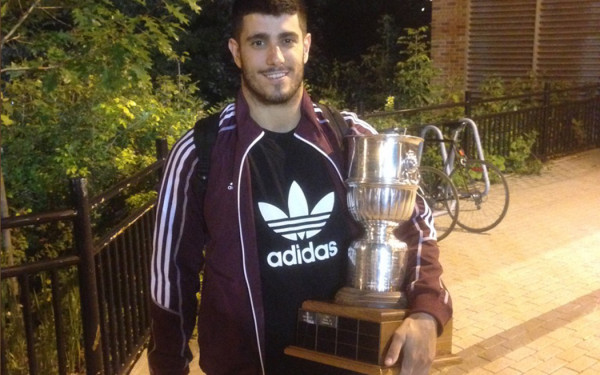Sports Culture Needs to Move Away From Rape Culture
The Conversation–It Needs to Change
Accusations of sexual assault within university athletics programs are far too commonplace.
The Baylor University rape scandal made the issue a major topic of conversation.
In Oct. 2016, the Wall Street Journal reported that, since 2011, 17 female students at Baylor University, in Waco, Texas, had accused up to 19 members of the football team of committing acts of sexual violence—including four gang rapes. Since then, only two players have been sentenced to jail time.
Art Briles, former head football coach at Baylor, was fired in May of 2016 for his involvement in the scandal. Not only was he aware of the attacks, but he also did nothing to reprimand the members of his team who committed them. On the contrary, he did everything he could to cover up these incidents, if only to ensure that his program was running smoothly. After all, the football team was winning games—and he didn’t want anything to get in the way of that.
On Nov. 25 2016, Baylor was set to meet the Texas Tech Raiders for a neutral site game at AT&T Stadium in Dallas, Texas. Baylor took the field dressed in all black uniforms instead of their usual green and yellow ones. They wore those alternate uniforms as a gesture of solidarity for Briles.
The message it sent was beyond fucked up.
“You’re going to find individual cases that are exceptions, but the system as it is in the U.S. around big-money collegiate sports is all about continuing to make money,” said freelance journalist Jessica Luther—who initially helped break the news of the cover-up.
“Sometimes an institution will make the conscious decision to not interfere with the running of their team,” she continued.
All of this went public around the same time as Brock Turner’s case hit the news. Turner sexually assaulted a fellow student at Stanford University while she was unconscious. He was not reprimanded for the full extent of his acts, and his father lamented the punishments, stressing his disappointment for Brock’s swimming career being derailed over “20 minutes of action.” And by the way, he’s already been released from jail, after only serving three of his laughable six-month sentence.
Both situations were incredibly disturbing, and they both had people wondering whether sports culture promotes rape culture, and why sexual assault in sports is so common.
“What’s going on at Baylor is not dissimilar to other cases across the U.S., and internationally,” said Annie E. Clark, founder of End Rape on Campus and one of the survivors documented in the film The Hunting Grounds.
Luther believes that the violent masculinity found in certain sports does, in part, contribute to the intersection of sports and rape culture. However, she also thinks that the issue lies in the way these cases are covered.
“I get these really sad Google alerts that really catch my attention, because they’ll begin with ‘former collegiate linebacker, or former so-and-so wide receiver arrested for domestic violence,’” explained Luther. “My thought is ‘who cares?’ I care about the people who are having these things happen to them—why should the accused’s athletic career matter?”
She stressed that the media’s focus on a perpetrator’s sports achievements diverts attention from other instances of abuse, as well. “The media chooses to report this, but they won’t talk about the banker down the street that beats his wife. If they can attach it to a sports program, they’ll always do that,” she said.
When details of Brock Turner’s case became public, large parts of the conversation revolved around how the accusations would affect his swimming career. When Shawn Oakman, one of the players involved in the Baylor scandal, was accused of his crimes, football media was more interested in how this would affect his prospects of playing in professional leagues, rather than the atrocities for which he had not been punished.
“In a lot of these articles, it’s important to see how things are covered. It’s not about the crimes, but rather how many touchdowns they throw or his swimming time; how many records does he hold; where will he transfer?” said Clark.
Between the cover-ups and the poor reporting, it’s not difficult to see that sports culture lacks accountability.
“Anytime someone has privilege in society, I do think they are less likely to be held accountable for their actions. And that’s across the board. We see this at schools where athletes are put on a pedestal, but also [with] anybody else on campus who has power,” said Clark.
“The media chooses to report this, but they won’t talk about the banker down the street that beats his wife. If they can attach it to a sports program, they’ll always do that.”— Jessica Luther, journalist
The issue of sexual violence in sports is not lost on Jennifer Drummond, coordinator of the Sexual Assault Resource Center at Concordia. For the last two years, the SARC has put every student-athlete at Concordia through sexual assault workshops where they learn about consent, intervention, and rape culture.
“Through the training, I really want athletes to understand their position as potential role models and leaders,” said Drummond.
This type of training is important. Luther believes that the problem with how we deal with sexual assault is that as a society, we are far too reactive.
“One thing we haven’t tried really hard is prevention; education about consent; what a healthy relationship looks like; even stuff like educating people on what dating violence looks like. We’re still very reactive about that,” said Luther.
The reason Baylor covered up the assaults was because when they were faced with accusations of harm that had already been done, they came to the conclusion that it was in their best interest to sweep it under the rug—and let the players keep racking up wins.
Preventative measures, according to Luther, are a big part of what we can do to eradicate rape culture in sports culture.
At Concordia, Drummond wants to make sure student-athletes are aware of the influence they can have on the university community.
“Athletes are given a lot of status and a lot of power, whether it’s in a university or more broadly,” she said. “Using that responsibly and using that for good is also important because they have a lot of power in shifting the culture […] a lot of people look up to athletes.”


_600_832_s.png)

_600_375_90_s_c1.jpg)
_600_375_90_s_c1.jpg)

